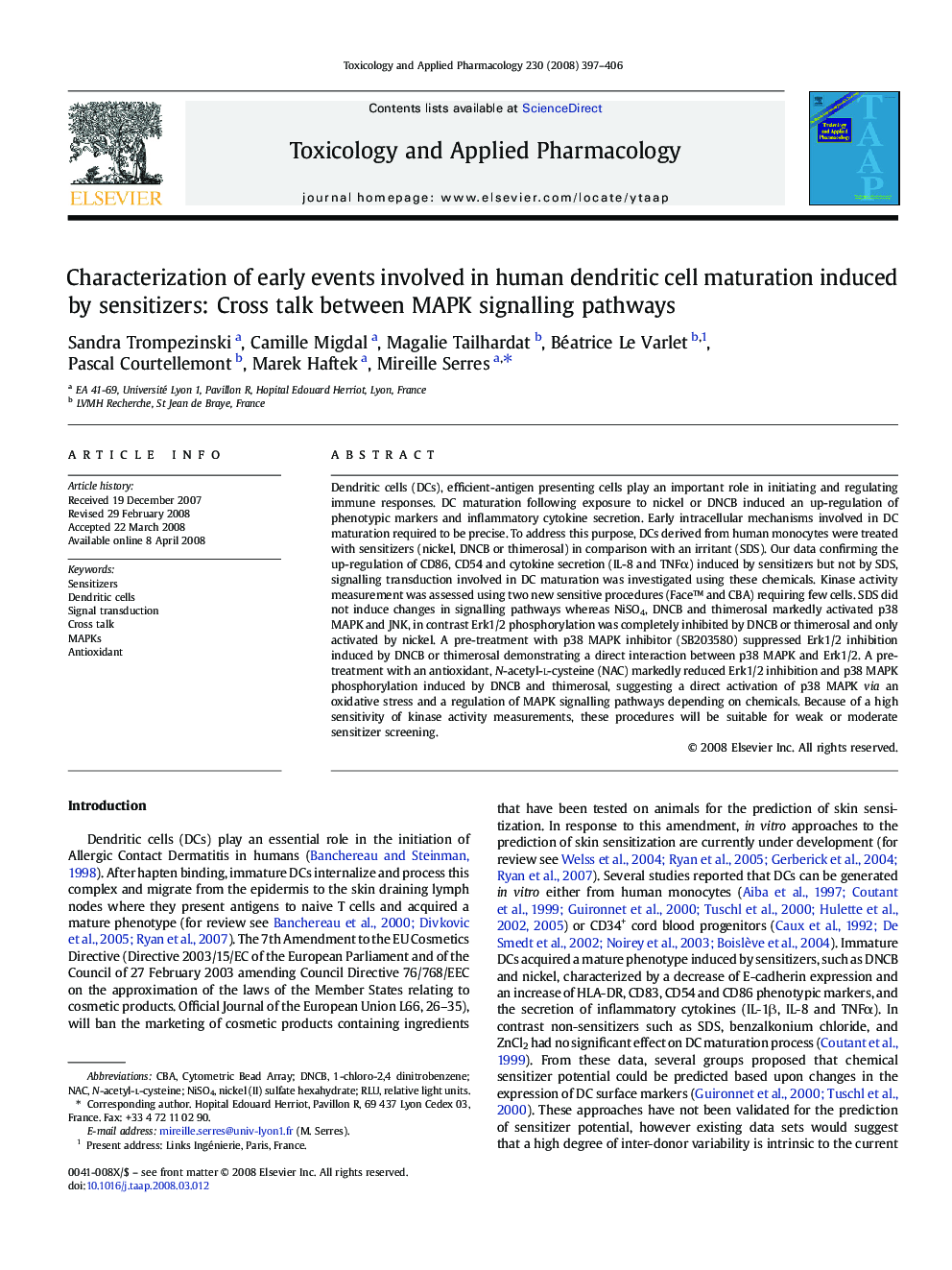| Article ID | Journal | Published Year | Pages | File Type |
|---|---|---|---|---|
| 2571349 | Toxicology and Applied Pharmacology | 2008 | 10 Pages |
Dendritic cells (DCs), efficient-antigen presenting cells play an important role in initiating and regulating immune responses. DC maturation following exposure to nickel or DNCB induced an up-regulation of phenotypic markers and inflammatory cytokine secretion. Early intracellular mechanisms involved in DC maturation required to be precise. To address this purpose, DCs derived from human monocytes were treated with sensitizers (nickel, DNCB or thimerosal) in comparison with an irritant (SDS). Our data confirming the up-regulation of CD86, CD54 and cytokine secretion (IL-8 and TNFα) induced by sensitizers but not by SDS, signalling transduction involved in DC maturation was investigated using these chemicals. Kinase activity measurement was assessed using two new sensitive procedures (Face™ and CBA) requiring few cells. SDS did not induce changes in signalling pathways whereas NiSO4, DNCB and thimerosal markedly activated p38 MAPK and JNK, in contrast Erk1/2 phosphorylation was completely inhibited by DNCB or thimerosal and only activated by nickel. A pre-treatment with p38 MAPK inhibitor (SB203580) suppressed Erk1/2 inhibition induced by DNCB or thimerosal demonstrating a direct interaction between p38 MAPK and Erk1/2. A pre-treatment with an antioxidant, N-acetyl-l-cysteine (NAC) markedly reduced Erk1/2 inhibition and p38 MAPK phosphorylation induced by DNCB and thimerosal, suggesting a direct activation of p38 MAPK via an oxidative stress and a regulation of MAPK signalling pathways depending on chemicals. Because of a high sensitivity of kinase activity measurements, these procedures will be suitable for weak or moderate sensitizer screening.
